Best movies & TV Shows like The Voice of Firestone
A unique, carefully handpicked, selection of the best movies like The Voice of Firestone . If you liked The Voice of Firestone then you may also like: What's Cookin'?, Jazz Heaven, The Big Broadcast, Hymn of the Nations, Twenty Million Sweethearts and many more popular movies featured on this list. You can further filter the list even more or get a random selection from the list of similar movies, to make your selection even easier.
The Voice of Firestone is a long-running radio and television program of classical music. The show featured leading singers in selections from opera and operetta. Originally titled The Firestone Hour, it was first broadcast on the NBC Radio network on December 3, 1928 and was later also shown on television starting in 1949. The program was last broadcast in 1963.
You may filter the list of movies on this page for a more refined, personalized selection of movies.
Still not sure what to watch click the recommend buttun below to get a movie recommendation selected from all the movies on this list
The Big Broadcast
The top brass at a radio station believe their popular new star singer is paying more attention to his love life than to his career.
Hymn of the Nations
Hymn of the Nations, originally titled Arturo Toscanini: Hymn of the Nations, is a 1944 film directed by Alexander Hammid, which features the "Inno delle nazioni," a patriotic work for tenor soloist, chorus, and orchestra, composed by Italian opera composer Giuseppe Verdi in the early 1860s. (For this musical work, Verdi utilized the national anthems of several European nations.) In December 1943, Arturo Toscanini filmed a performance of this music for inclusion in an Office of War Information documentary about the role of Italian-Americans in aiding the Allies during World War II. Toscanini added a bridge passage to include arrangements of "The Star-Spangled Banner" for the United States and "The Internationale" for the Soviet Union and the Italian partisans. Joining Toscanini in the filmed performance in NBC Studio 8-H, were tenor Jan Peerce, the Westminster Choir, and the NBC Symphony Orchestra. The film also included the overture to Verdi's opera La Forza del Destino.
Twenty Million Sweethearts
Unscrupulous agent Rush Blake makes singing waiter Buddy Clayton a big radio star while Peggy Cornell, who has lost her own radio show, helps Buddy.
The Phantom Empire
When the ancient continent of Mu sank beneath the ocean, some of its inhabitant survived in caverns beneath the sea. Cowboy singer Gene Autry stumbles upon the civilization, now buried beneath his own Radio Ranch. The Muranians have developed technology and weaponry such as television and ray guns. Their rich supply of radium draws unscrupulous speculators from the surface. The peaceful civilization of the Muranians is corrupted by the greed from above, and it becomes Autry's task to prevent all-out war, ideally without disrupting his regular radio show.
The Great American Broadcast
After WWI two men go into radio. Failure leads the wife of one to borrow money from another; she goes on, after separation, to stardom. A coast-to-coast radio program is set up to bring everyone back together.
Hit Parade of 1941
In this musical, the second entry in a five-film series, a thrift shop owner sells his business and buys a small time radio station. He begins looking for sponsors. He finds one with a department store owner who will only lend him the money if he will allow his daughter, an aspiring tap-dancer and singer, to perform on the air. This is unfortunate as she is tone-deaf. To compensate, the owner hires a real singer to dub the daughter's voice. The singer and the owner's nephew fall in love and mayhem ensues. Songs include: the Oscar nominated "Who Am I?," "Swing Low Sweet Rhythm," "In The Cool of the Evening," "Make Yourself at Home," "The Swap Shop Song," "The Trading Post," "Sally," "Ramona," "Sweet Sue," "Dinah," "Margie," and "Mary Lou."
Feudin' Rhythm
Eddy Arnold, singing star of the Ace Lucky radio program gets involved when Ace's equipment for a television program is destroyed by a fire. Aces accepts the sponsorship of social-climber Lucille Upperworth, who tries to revamp the western/hillbilly music format to classical music.
The Brak Show
The Brak Show is an animated television series that aired on Cartoon Network's late night programming block, Adult Swim. The Brak Show is a spin-off of the animated television series, Space Ghost Coast to Coast, and featured recurring characters from Space Ghost Coast to Coast and Cartoon Planet. Both programs used stock footage from the Hanna-Barbera cartoon Space Ghost. The protagonist is Brak, voiced by Andy Merrill, who developed a quirky persona for the character. An earlier version of the pilot episode, "Mr. Bawk Ba Gawk", originally aired prior to the official launch of Adult Swim on Cartoon Network on December 21, 2000, as part of a preview of upcoming Adult Swim shows. The series made its official debut during the night Adult Swim officially launched on September 2, 2001, and ended on December 31, 2003, with a total of 28 episodes. On May 24, 2007 a webisode for the series was released on Adult Swim Video, ending the series.
Captain Kangaroo
Captain Kangaroo was an American children's television series which aired weekday mornings on the American television network CBS for nearly 30 years, from October 3, 1955 until December 8, 1984, making it the longest-running nationally broadcast children's television program of its day. In 1986, the American Program Service integrated some newly produced segments into reruns of past episodes, distributing the newer version of the series until 1993. The show was conceived and the title character played by Bob Keeshan, who based the show on "the warm relationship between grandparents and children." Keeshan had portrayed the original Clarabell the Clown on The Howdy Doody Show when it aired on NBC. Captain Kangaroo had a loose structure, built around life in the "Treasure House" where the Captain would tell stories, meet guests, and indulge in silly stunts with regular characters, both humans and puppets. The show was telecast live to the East Coast and the Midwest for its first four years and broadcast on kinescope for the West Coast, as Keeshan would not perform the show live three times a day, and was in black-and-white until 1966. The May 17, 1971 episode saw two major changes on the show: The Treasure House was renovated and renamed "The Captain's Place" and the Captain replaced his navy blue coat with a red coat. In September 1981, CBS shortened the hour-long show to a half-hour, briefly retitled it Wake Up with the Captain, and moved it to an earlier time slot; it was later moved to weekends in September 1982, and returned to an hour-long format. It was canceled by CBS at the end of 1984.
Chase
Chase is an American police procedural drama television series created by Jennifer Johnson for the NBC network. The series follows a U.S. Marshals fugitive-apprehension team, based out of Houston, Texas. Jerry Bruckheimer and Johnson serve as executive producers for the one-hour drama. The series originally aired on Mondays at 10:00 pm ET/9:00 pm CT and premiered on September 20, 2010. After the mid-season break, Chase returned on Wednesdays at 9:00 pm ET/8:00 pm CT On October 19, 2010, the network ordered a full season consisting of 22 episodes, but this order was cut to 18 in December. On February 3, 2011, the show was put on "a hiatus" with no plan regarding the remaining episodes. On April 6, 2011, NBC announced the remaining five episodes would be broadcast on Saturday nights beginning on April 23, 2011. Later the show was replaced by Harry's Law.
George of the Jungle
George of the Jungle is an American animated series produced by Jay Ward and Bill Scott, who created The Rocky and Bullwinkle Show. The character George was inspired by the legend of Tarzan. It ran for 17 episodes on Saturday mornings from September 9 to December 30, 1967, on the American TV network ABC. The half-hour program was distributed for many years by Worldvision Enterprises, currently part of CBS Television Distribution. Each Full Episode was a compilation of 3 mini episodes from 3 different shows: George of the Jungle; Tom Slick; Super Chicken -Each voiced by the same actors.
The Glen Campbell Goodtime Hour
The Glen Campbell Goodtime Hour is an American network television music and comedy variety show hosted by singer Glen Campbell from January 1969 through June 1972 on CBS. He was offered the show after he hosted a 1968 summer replacement for The Smothers Brothers Comedy Hour. Campbell used "Gentle on My Mind" as the theme song of the show. The show was one of the few rural-oriented shows to survive CBS's rural purge of 1971.
Howdy Doody
Howdy Doody is an American children's television program that was created and produced by E. Roger Muir and telecast on the NBC network in the United States from December 27, 1947 until September 24, 1960. It was a pioneer in children's television programming and set the pattern for many similar shows. One of the first television series produced at NBC in Rockefeller Center, in Studio 3A, it was also a pioneer in early color production as NBC used the show in part to sell color television sets in the 1950s.
Meet the Press
Meet the Press is a weekly American television news/interview program airing on NBC. It is the longest-running television series in American broadcasting history, despite bearing little resemblance to the original format of the program seen in its television debut on November 6, 1947. Meet the Press is the highest-rated of the American television Sunday morning talk shows. It has been hosted by 11 moderators, beginning with Martha Rountree. The current host is David Gregory, who assumed the role in December 2008. The show began using a new set on May 2, 2010, with video screens and a library-style set with bookshelves, and different, modified intro music, with David Gregory previewing the guests using a large video screen, and with the Meet the Press theme music in a shorter "modernized [style]... the beginning repeated with drum beats". Meet the Press and similar shows specialize in interviewing national leaders on issues of politics, economics, foreign policy and other public affairs. Over the past few years, the program's usual time slot over the NBC network is between 9-10 a.m. local time in most markets, though this may vary by markets due to commitments by affiliates to religious, E/I or local news and public affairs programming. It also varies several weeks in the summer due to morning coverage of French Open tennis or the Monaco Grand Prix by NBC Sports. In earlier years, the program would air at noon every Sunday. The program also re-airs Sunday afternoons at 2 p.m. ET and early Monday mornings at 4 a.m. ET on MSNBC, along with an early Monday morning replay as part of NBC's "All Night" lineup. The program is also distributed to radio stations via syndication by Dial Global, and aired as part of C-SPAN Radio's replay of the Sunday morning talk shows.
Monday Night Countdown
. Monday Night Countdown, which debuted in 1993 on ESPN, is a television program featuring analysis and news on that night's NFL match to be broadcast on ESPN. The show was originally titled NFL Prime Monday from 1993-97 before it was renamed Monday Night Countdown in 1998. The official name of the show is Monday Night Countdown served by Applebee's. The show's previous sponsor was UPS. When it first debuted, it was one of the first cross-pollinations between ESPN and ABC Sports, which each largely operated under separate management at the time.
Nashville Star
Nashville Star is an American reality television program. It was last produced and transmitted during mid-2008 on NBC, following five seasons on USA Network. It premiered on March 8, 2003, and its five seasons on USA made it the longest-running competition series on cable television. In Canada, the show aired on CMT through season 5, but moved to E! beginning with season 6. CMT in the United States reaired each episode in season 6. It was similar to American Idol, in that performers had to sing to impress both celebrity judges and the public via call-in and/or internet votes. Unlike American Idol, however, the performers were limited to country music. This restriction was relaxed for Season 6, allowing for the finalists to choose from many genres of music, but the songs were arranged to maintain a country sound. On March 13, 2009, it was confirmed that the series had been canceled by NBC and would not be returning for a seventh season.
NBC Nightly News With Lester Holt
NBC Nightly News is the flagship daily evening television news program for NBC News, the news division of the NBC television network in the United States, and is the #1-rated newscast in America. NBC Nightly News is produced from Studio 3B at NBC Studios at 30 Rockefeller Center in New York City. Since 2015, the broadcast has been anchored by Lester Holt on weeknights, José Díaz-Balart on Saturday and Kate Snow on Sunday. On weeknights, it is broadcast live over most NBC stations from 6:30-7:00 p.m. Eastern and occasionally updated for Pacific Time Zone viewers in a "Western Edition". Its current theme music was composed by John Williams.
Search for Tomorrow
Search for Tomorrow is an American soap opera that premiered on September 3, 1951, on CBS. The show was moved from CBS to NBC on March 29, 1982. It continued on NBC until the final episode aired on December 26, 1986, a run of thirty-five years. At the time of its final broadcast, it was the longest-running non-news program on television. This record would later be broken by Hallmark Hall of Fame, which premiered on Christmas Eve 1951 and still airs occasionally. The show was created by Roy Winsor and was first written by Agnes Nixon for thirteen weeks and, later, by Irving Vendig.
This Is Your Life
This Is Your Life is an American television documentary series broadcast on NBC, originally hosted by its producer, Ralph Edwards from 1952 to 1961. In the show, the host surprises a guest, and proceeds to take them through their life in front of an audience, including special guest appearances by colleagues, friends and family. Edwards revived the show in 1971-72, while Joseph Campanella hosted a version in 1983. Edwards returned for some specials in the late 1980s, before his death in 2005. The show originated as a radio show on NBC Radio airing from 1948 to 1952.
Today
Today is a daily American morning television show that airs on NBC. The program debuted on January 14, 1952. It was the first of its genre on American television and in the world, and is the fifth-longest running American television series. Originally a two-hour program on weekdays, it expanded to Sundays in 1987 and Saturdays in 1992. The weekday broadcast expanded to three hours in 2000, and to four hours in 2007. Today's dominance was virtually unchallenged by the other networks until the late 1980s, when it was overtaken by ABC's Good Morning America. Today retook the Nielsen ratings lead the week of December 11, 1995, and held onto that position for 852 consecutive weeks until the week of April 9, 2012, when it was beaten by Good Morning America yet again. In 2002, Today was ranked #17 on TV Guide's 50 Greatest Television Shows of All Time.
CBS Evening News with Norah O'Donnell
The CBS Evening News is the flagship daily evening television news program of CBS News, the news division of the CBS television network in the United States. The network has broadcast the program since 1948, and has used the CBS Evening News title since 1963.
Old Bear Stories
Old Bear Stories was a BAFTA award winning stop frame animation television series for children based on the Old Bear and Friends books by Jane Hissey. Jane Hissey also created the television series, starting it on 24 September 1993, and creating 3 seasons, which ended on 24 December 1997 with a double-length Christmas special. In all, 41 episodes were made. The series was produced by Ealing Animation and was originally broadcast in the United Kingdom on ITV. Episodes have subsequently been repeated on Channel 5 in the UK, and are also broadcast in the United States and other countries worldwide. The show also aired for a short time on the CBC morning children's block in Canada. It also aired in the United States as part of Cartoon Network's Small World show. Episodes of the series were released on VHS by Carlton Video.
High Stakes Poker
High Stakes Poker is a cash game poker television program, which was broadcast by the cable television network GSN in the United States. The poker variant played on the show is no limit Texas hold 'em. It premiered on January 16, 2006 and ended on December 17, 2007 for the first 4 seasons and the last 3 seasons ran from March 1, 2009 to May 21, 2011 and was simulcast in 3DTV on N3D. The participants on the show include both professional poker players and amateur players. The show was hosted by AJ Benza in the first five seasons, alongside Gabe Kaplan. Starting with the sixth season, Kara Scott replaced Benza as Kaplan's co-host, with Scott conducting interviews from the poker room floor. Starting with the seventh season, Norm Macdonald replaced Gabe Kaplan as Scott's co-host. In 2020, after a nine year hiatus, the show returned with the original commentary duo of Benza and Kaplan.
Poker After Dark
Poker After Dark is an hour-long poker television program on NBC. The show made its debut on January 1, 2007, and was cancelled on September 23, 2011 following the "Black Friday" criminal case, which involved major sponsor Full Tilt Poker as one of the defendants. For its first two seasons, both of which originally aired in 2007, the show was presented by Shana Hiatt. The host for season 3 was Marianela Pereyra, and Leeann Tweeden took over starting with season 4. All seasons have contained voice-over commentary by Oliver "Ali" Nejad. The program returned to American television over the NBC Sports Network on March 5, 2012 with previously aired repeats, with unaired episodes from season 7 airing for the first time beginning June 4, 2012. NBCSN schedules the show on weeknights at midnight, although the start time varies due to overruns by sporting events.
The Red Skelton Show
The Red Skelton Show is an American variety show that was a television staple for two decades, from 1951 to 1971. It was second to Gunsmoke and third to The Ed Sullivan Show in the ratings during that time. Skelton, who had previously been a radio star, had appeared in several motion pictures as well. Although his television series is largely associated with CBS, where it appeared for more than fifteen years, it actually began and ended on NBC. During its run, the program received three Emmy Awards, for Skelton as best comedian and the program as best comedy show during its initial season, and an award for comedy writing in 1961.
Land and Sea
Land and Sea is a locally produced Canadian documentary television show broadcast in Newfoundland and Labrador on CBNT-DT in St. John's, and on all CBC Television outlets throughout the province. It has been on the air since 1964; originally a black-and-white program, it began broadcasting in colour in the late '60s/early '70s. There is also a Maritime version of Land and Sea which is broadcast on the full CBC network on Sunday afternoons, and episodes from that version are often alternated with Newfoundland-based episodes.
The Danny Kaye Show
The Danny Kaye Show is an American variety show hosted by Danny Kaye that aired on CBS from 1963 to 1967 on Wednesday nights. Directed by Robert Scheerer, the show premiered in black-and-white, but later switched to color broadcasts. At the time, Kaye was at the height of his popularity, having starred in a string of successful films in the 1940s and '50's, made successful personal appearances at such venues as the London Palladium, and appeared many times on television. His most recent films had been considered disappointing, but the television specials he starred in were triumphant, leading to this series. Prior to his television and film career, Kaye had made a name for himself with his own radio show, and numerous other guest appearances on other shows.
A History of Scotland
Presented by Neil Oliver, A History of Scotland is a television series first broadcast in November 2008 on BBC One Scotland and later shown UK-wide on BBC Two during January 2009. The second series began on BBC One Scotland in early November 2009, with transmission at a later point on network BBC Two. Along with the series, BBC Scotland planned a range of radio programmes, a new website, an interactive game, and concerts. The Open University, in collaboration with the BBC, also created a series of audio walks around historic locations in Scotland, with narration from Oliver. In Australia, series one aired on SBS One Sundays at 7:30pm from 6 December 2009 to 3 January 2010. Series two commenced on 24 October 2010 running until 21 November in the same Sunday night Lost Worlds strand. It has since been repeated.
Omertà, la loi du silence
Omertà or Omertà, The Code of Silence is a Quebec television series of 11 forty-five minute episodes, created by Luc Dionne and aired from January to April 1996 on Radio-Canada. In France, the series aired on France 3 in 1998. A second season, titled Omertà II – The Code of Silence, had 14 forty-five minute episodes and was broadcast between September and December 1997 on Radio-Canada. A third season, titled Omerta, The Last Men of Honor, had 13 episodes and was broadcast from January to April 1999, on Radio-Canada.
Lights Out
Lights Out was an extremely popular American old-time radio program, an early example of a network series devoted mostly to horror and the supernatural, predating Suspense and Inner Sanctum. Versions of Lights Out aired on different networks, at various times, from January 1934 to the summer of 1947 and the series eventually made the transition to television. In 1946, NBC Television brought Lights Out to TV in a series of four specials, broadcast live and produced by Fred Coe, who also contributed three of the scripts. NBC asked Cooper to write the script for the premiere, "First Person Singular", which is told entirely from the point of view of an unseen murderer who kills his obnoxious wife and winds up being executed. Variety gave this first episode a rave review ("undoubtedly one of the best dramatic shows yet seen on a television screen"), but Lights Out did not become a regular NBC-TV series until 1949.
The Morey Amsterdam Show
The Morey Amsterdam Show is an American sitcom which ran from 1948-1949 on CBS Television and 1949-1950 on the DuMont Television Network, for a total of 71 episodes.
Bruce Forsyth's Big Night
Screened on ITV, Saturday nights throughout the autumn and winter of 1978. A total of 12 episodes were broadcast between 7 October and 31 December 1978, with an additional highlights show and a further one off special on 4 April 1980. Despite a huge budget and big name guest stars it was poorly received and was broadly unsuccessful, with Forsyth's former big hit The Generation Game (hosted then by Larry Grayson) winning higher audience figures.
Victory at Sea
Victory at Sea is a documentary television series about naval warfare during World War II that was originally broadcast by NBC in the USA in 1952–1953. It was condensed into a film in 1954. Excerpts from the music soundtrack, by Richard Rodgers and Robert Russell Bennett, were re-recorded and sold as record albums. The original TV broadcasts comprised 26 half-hour segments—Sunday afternoons at 3pm in most markets—starting October 26, 1952 and ending May 3, 1953. The series, which won an Emmy award in 1954 as "best public affairs program", played an important part in establishing historic "compilation" documentaries as a viable television genre. Over 13,000 hours of footage gathered from US, British, German and Japanese navies during World War II were perused in the making of these compelling episodes.
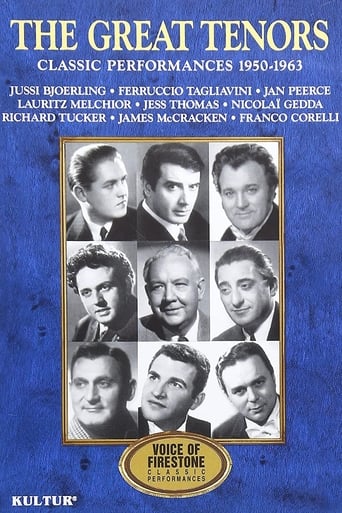

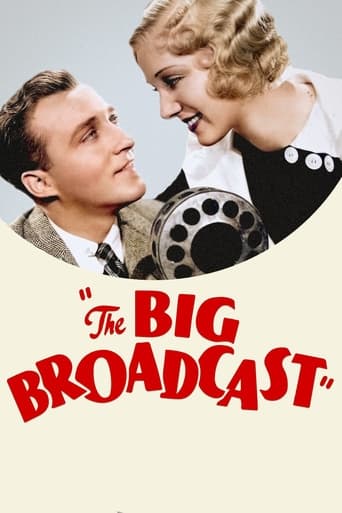































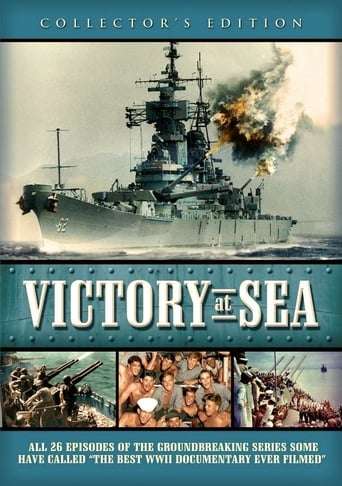
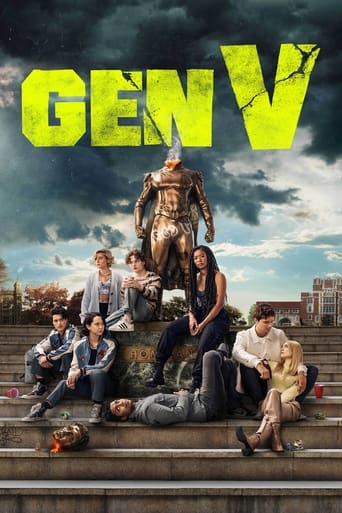
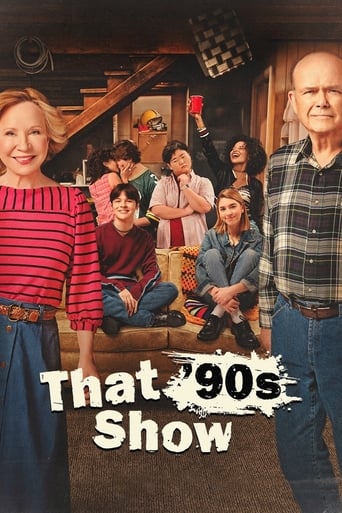
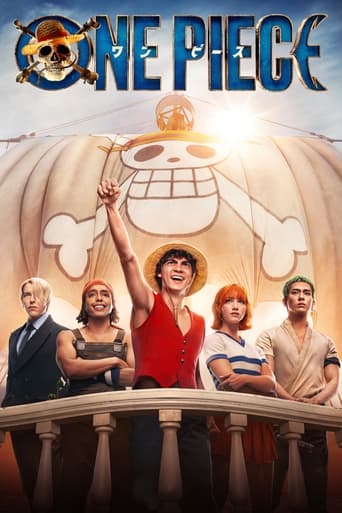
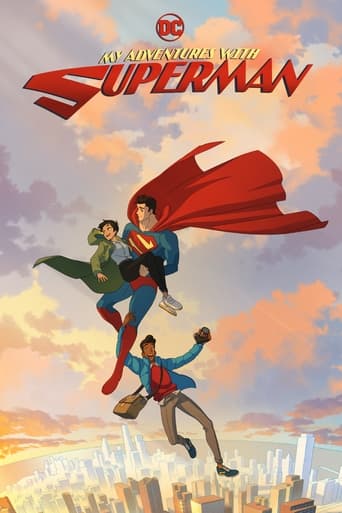
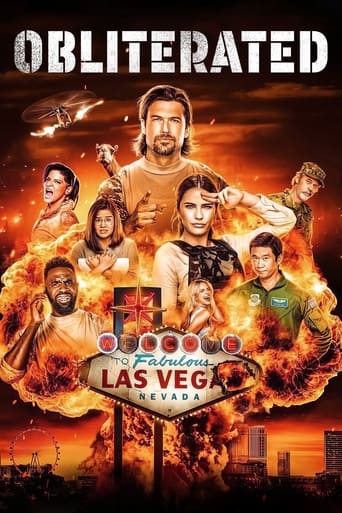
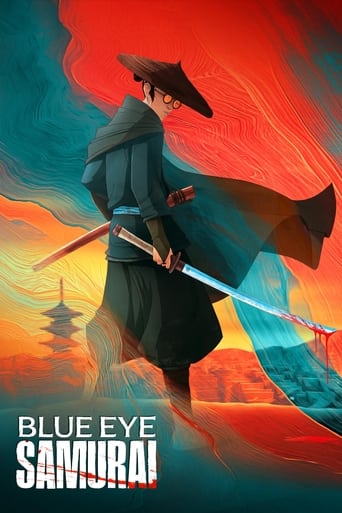
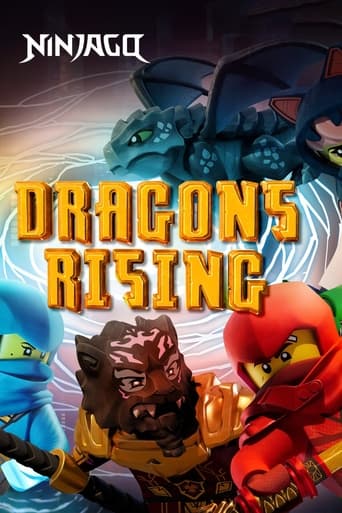
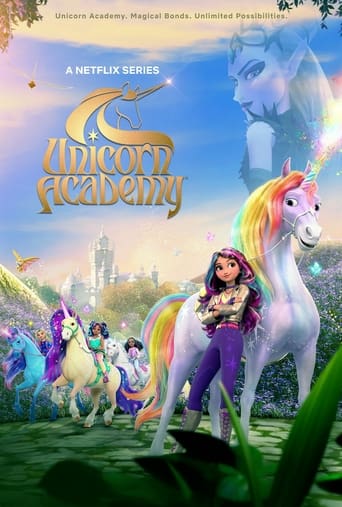
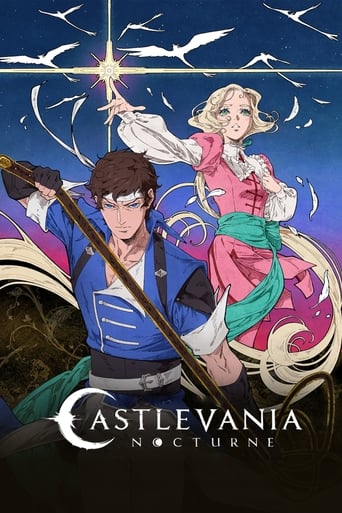


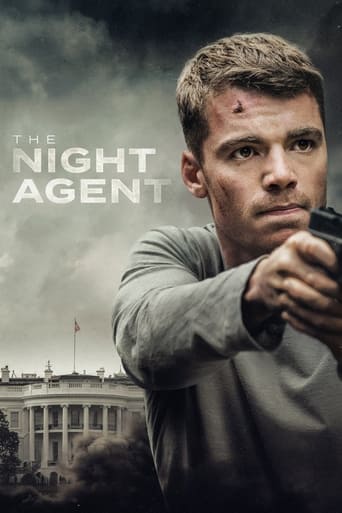
What's Cookin'?
J. P. Courtney wants to update the music on the radio program he sponsors, but his wife, Agatha Courtney, is the final authority and addicted to the classics and won't allow him to replace Professor Bistell and his symphonic orchestra. Conspiring with his daughter Sue and her friends, Marvo the Great, the Andrews Sisters, Anne Payne and bandleader Woody Herman, they devise a sabotage plot that gets rid of Professor Bistell, and a new sound is soon heard on the program.